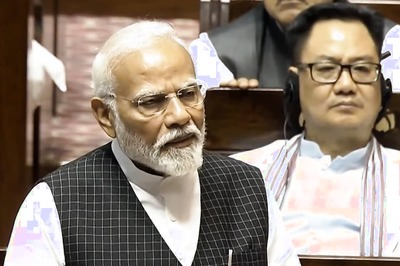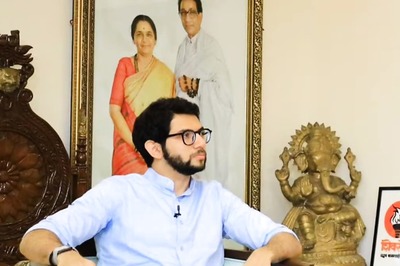
views
Finance Minister Nirmala Sitharaman presented the Union Budget 2024 on Tuesday, July 23. This is the first of the PM Modi government’s third term and Nirmala Sitharaman’s seventh budget. The salaried middle-class income group has been the most disappointed with this budget.
In her budget announcement, the minister introduced some relief measures to promote the new tax regime, including a 5 per cent tax on income of Rs 3 to Rs 7 Lakh. Earlier, a 5 per cent tax had to be paid on Rs 3 to 6 lakh slab. With these changes, taxpayers will avail a benefit of Rs 17,500 in the new tax regime. However, those who have opted for the old tax regime to save tax, have not been given any advantages.
In the budget, there have been no relief measures even for those people, who invest their money in mutual funds and shares. The Prime Minister, Union Home Minister, and even the Finance Minister himself have been encouraging people to invest money in the stock market. The LTCG (Long Term Capital Gains Tax) has been increased from 10 per cent to 12.5 per cent and STCG (Short-term Capital gain tax) has been increased from 15 per cent to 20 per cent.
On the positive side, for the benefit of the lower and middle-income classes, it was proposed to increase the limit of exemption of capital gains on certain listed financial assets from Rs 1,00,000 lakh to Rs 1.25,00,000 per year. However, the investors would be still required to shell out more tax, on their investments in the mutual funds and shares.
The Finance Minister also announced reducing the long-term capital gains (LTCG) tax on immovable properties to 12.5 per cent from 20 per cent. However, she removed the indexation benefits to adjust for inflation, which will significantly impact individuals selling their properties.
Indexation adjusts the purchase price of an asset for inflation, reducing taxable profits and tax liabilities. Without this adjustment, taxpayers may have to pay increased taxes despite the lower LTCG rate. However, the government has clarified that the indexation benefits for properties bought till 2001 will continue. Revenue Secretary Sanjay Malhotra has clarified this in a media interaction.



















Comments
0 comment